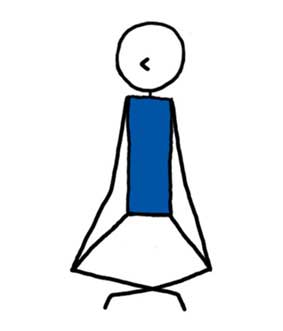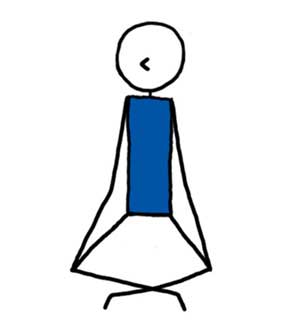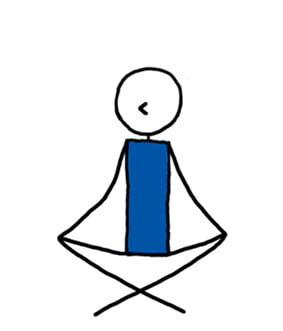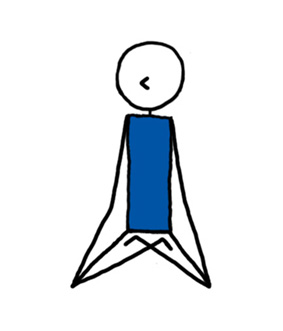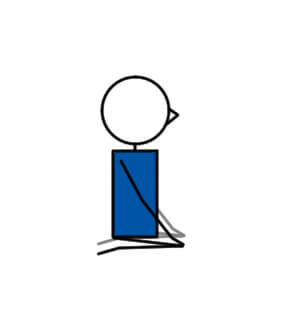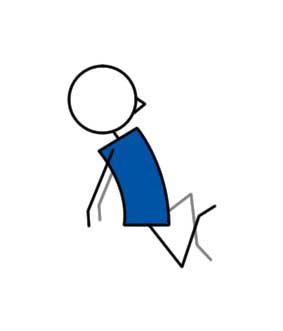
| Category: | Yoga Lesson Planner |
|---|---|
| Sub Category: | Meditation |
| Types: | Restorative, Seated, Seated & Floor |
| Anatomy: | Core, Hamstrings, Hips, Psoas |
| Chakras: | Crown Centre, Third Eye |
| Therapy: | Anxiety, Stress |
| Drishti: | Tip Of Nose |
| Dosha: | Kapha, Pitta |
Sit with legs crossed. Close eyes. Silently ponder this quote: "To change a relationship, we must change ourselves, not the other person."
Be the change we want to see in the world.
Folded blanket under buttocks.
Click here for lots of FREE downloadable Yoga lesson plans.
Click here for lots of FREE downloadable Pilates lesson plans.
- Joe E.
- Beverly Ellars, Session on May 8
- JY-Online (1) YIN 75-mins (March 2020)
- 43 Meditation Exercises
- Meditation options
- TYC - Meditation Scripts
- TYC - Meditation Scripts
- Meditation Scripts - Short
- Meditation/Relaxation techniques
- Restorative Yoga: Antithesis Of No Pain No Gain Mentality
- Temp can be deleted
- Restorative Yoga: Annamaya
- Meditation Scripts - Short
- Restorative Yoga: and Reiki
- Restorative IOL
- R.T. Private Sessions
- Yin awareness 75
- Restorative IOL
- Restorative Yoga: Antithesis Of No Pain No Gain Mentality
- meditations
- Restorative
- breath
- breath beginners humming bee
- TYC - Meditation Scripts
- TYC - Meditation Scripts
- Ask Genie3
- 43 Meditation Exercises
- TYC - Meditation Scripts
- TYC - Meditation Scripts
- TYC - Meditation Scripts
- TYC - Meditation Scripts
- TYC - Meditation Scripts
- TYC - Meditation Scripts
- TYC - Meditation Scripts
- TYC - Meditation Scripts
- Meditations
- 43 Meditation Exercises
- Kelly Yin Yoga Sequence
- TYC - Meditation Scripts
- TYC - Meditation Scripts
- TYC - Meditation Scripts
- TYC - Meditation Scripts
- Hatha Yoga: 30 Meditations In 30 Days
- 14/06/2022
- Meditation
- Meditations
- Ask Genie 37
- Ask Genie 38
- 43 Meditation Exercises: For Adults With ADHD
- Ask Genie 2
- Ask Genie 6
- Hatha Yoga: 30 Meditations In 30 Days - paloveyog
Meditation FAQs
Below are some FAQs you might be asked by your students regarding meditations.
Can you recommend any other meditations?
Yes. You might like these teen/adult meditations: Awareness Of Your Gifts Meditation, Attune To Touch Meditation, Balance In All You Do Meditation, Be Like Two Trees Meditation, Caged Bird Meditation, Calm Reservoir Meditation, Celtic Seer Meditation, Change Of Focus Meditation, and Child Within Meditation.
You might also like these teen/adult meditations, and these kid’s meditations.
Why is best to sit when meditating?
It’s hard to meditate effectively when lying down or standing. You want your muscles to relax, but not so relaxed that you fall asleep (which could happen if you’re lying down). You can sit in Easy Pose, Hero Pose, or Lotus Pose. Or you can sit on a chair (sit in the middle of the chair with legs uncrossed, feet flat on the floor, and hands resting on your lap).
What is meditation?
Meditation is the consistent process of training your mind to focus and redirect your thoughts.
Through meditation, you can rewire your brain to enhance positive traits (e.g. self-awareness, focus, kindness) and reduce the power of negative traits (e.g. fear, stress, anxiety).
Does meditation help improve sleep?
Yes. Over 50% of the world’s population have insomnia at some point in their lives. Studies show that people who meditate, stay asleep longer, get to sleep sooner, and wake up less during the night. It makes common sense.
Meditation will relax your body, putting you in a peaceful state which is ideal for combatting insomnia.
The importance of a good night’s sleep is finally becoming more widely known. An ongoing lack of sleep has been closely associated with hypertension, heart attacks, strokes, obesity, diabetes, depression, anxiety, decreased brain function, memory loss, weakened immune system, lower fertility rates, and psychiatric disorders.
The primary consequences of poor sleep among children and adolescents are behavior problems, impaired learning and school performance, mood swings, emotional problems, and obesity.
Does meditation help reduce stress?
Yes. Most people would agree that the top benefit is to reduce stress.
Does meditation increase Concentration?
Yes. It’s a great way to develop concentration. Being able to concentrate is becoming more challenging in our modern times due to constant distractions (social media, etc).
Can meditation help break addictive behaviours?
Meditation looks easy, but it is a highly disciplined mental habit. Few people have the discipline necessary to sit in silence meditation on a regular basis.
If, however, you’re able to build a regular meditation practice, you have a much higher chance of climbing the wall of whatever dependency prison you’re in, to freedom. Addiction is a brain disorder characterized by compulsive engagement in rewarding stimuli despite adverse consequences.
Research has shown that regular meditation practice trains the brain to redirect focus, manage emotional impulses, and increase understanding of the causes that trigger their addictive behaviours.
Medication can help with any kind of addiction including alcohol, drugs, fast food, binge eating, sugar, viewing pornography online, social media, playing video games, workaholism, and shopping.
Can meditation make me kinder?
It’s widely considered that meditation helps to increase positive feelings.
Whenever you sit in silence you are being kind to yourself due to the mind, body, and emotional benefits. The more positive you feel about yourself, the more kind you’ll tend to be to others.
Practitioners learn to extend the kindness and forgiveness within, to others. First to friends, then acquaintances, and after a lot of practice people that you’ve fallen out with. This kindness is ‘accumulative’ – it builds up each time you sit in silence and meditate.
Can meditation reduce memory loss?
Yes. Studies show that when you sit silently in meditation your focus will improve. So, quite literally mediation keeps your mind young. Meditation can also help improve memory in patients with dementia.
Can meditation enhance self-awareness?
Yes. Let’s be clear why this is such a big deal. When you develop a stronger understanding of yourself, it helps you grow into your potential.
We all have incredible potential, but only a few are able to reach within and tap into it.
Sitting in silence helps develop a greater understanding of yourself by reducing the endless monkey-mind chatter. When your mind is calmed by silence, you are much, much, much more likely to recognize thoughts that are self-defeating.
Countless thoughts are constantly bombarding your mind like the raindrops of a storm. If you’re in an emotional storm, you have the power to steer your thoughts out of the storm simply by sitting in silence and observing the thoughts in a nonjudgemental way.
What’s the best time to meditate?
Most people would say “first thing in the morning” because it’s setting the day up for you to remain calm in the chaos, and that’s true, but any time is good. The trick is to make your meditation time a daily habit.
How can I build a daily meditation habit?
One trick is to anchor your meditation practice to another habit, such as having a shower. Immediately after your shower, you unfold your Yoga mat and meditate. Don’t worry if you miss a session. That’s life. Simply start again ‘after your shower’ the following day.
Is it best to meditate in nature?
It’s best to have an easy habit. If you need to get in a car and drive 20 miles to the nearest sea, forest or mountaintop then meditation isn’t going to become a daily habit. So, it’s best to meditate in a room where you live, and then on special occasions drive to a beauty spot.
Should I be doing a Yogic breathing technique when meditating?
It’s not necessary. Simply let your breath be natural. If, however, you want to experiment by adding a yogic breathing exercise to your meditations, here are 50+ pranayama exercises to choose from.
How long should I meditate for?
If you’re a beginner start with one-minute meditations. As you become more comfortable you can increase the time. You don’t need to do more than 30 minutes a day unless you’re a Buddhist monk.




 Yoga Lesson Planner
Yoga Lesson Planner
 Pilates Lesson Planner
Pilates Lesson Planner





